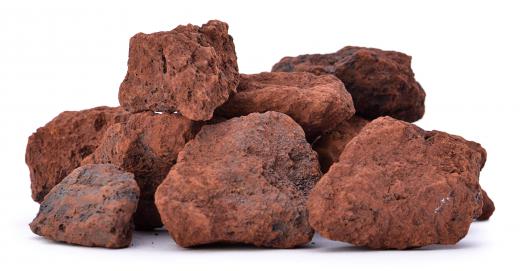Magnetite is an iron oxide mineral belonging to the group known as spinels. It is a very common and is a valuable iron ore. Magnetite has been known to mankind since early history and led to the earliest discovery and understanding of magnetism. It is the most highly magnetic naturally occurring mineral, and the variety known as lodestone was the basis for the first crude magnetic compasses. Today, there are many uses of magnetite, such as for abrasives and coatings.
Several minerals serve as sources of iron ore, and magnetite is one of the most important. Large quantities of magnetite are mined and processed into iron for use in the production of steel. Most of the magnetite mined annually is used for this purpose.

Much smaller amounts of magnetite are used in other but no less important ways. Abrasives are one such use, and magnetite is used to make the common abrasive known as emery, which is affixed to stiff pieces of wood or cardboard and impregnated into cloth, both of which are used in much the same way as sandpaper. Emery boards are a popular cosmetic tool for filing and sanding fingernails for example. Granulated magnetite is sometimes added to water jet devices that are used for cutting and and to sandblasting material as an abrasive.
Water treatment may be one of the most important uses of magnetite as the mineral attracts and binds dissolved arsenic. Extremely small particles of magnetite are highly effective in removing arsenic, which is a major and dangerous contaminant of water sources around the world.
The production of ammonia and manmade hydrocarbons are two more uses of magnetite. It is not directly involved in the chemical reactions that produce these compounds, but it does act as a catalyst for them, increasing output and improving efficiency. Ammonia production is a key step in the production of fertilizers that are used to produce crops that feed the world's population. Magnetite is sometimes used as an additive to fertilizer, providing iron as a micronutrient.
Providing the pigment in some paints and toners is another of the uses of magnetite. It is especially common in the toner used in the photocopying process. Magnetite is also used to coat the inside of some types of boilers and other containers that are intended to hold liquid at high temperatures. High-density concrete often has ground magnetite as an additive.
